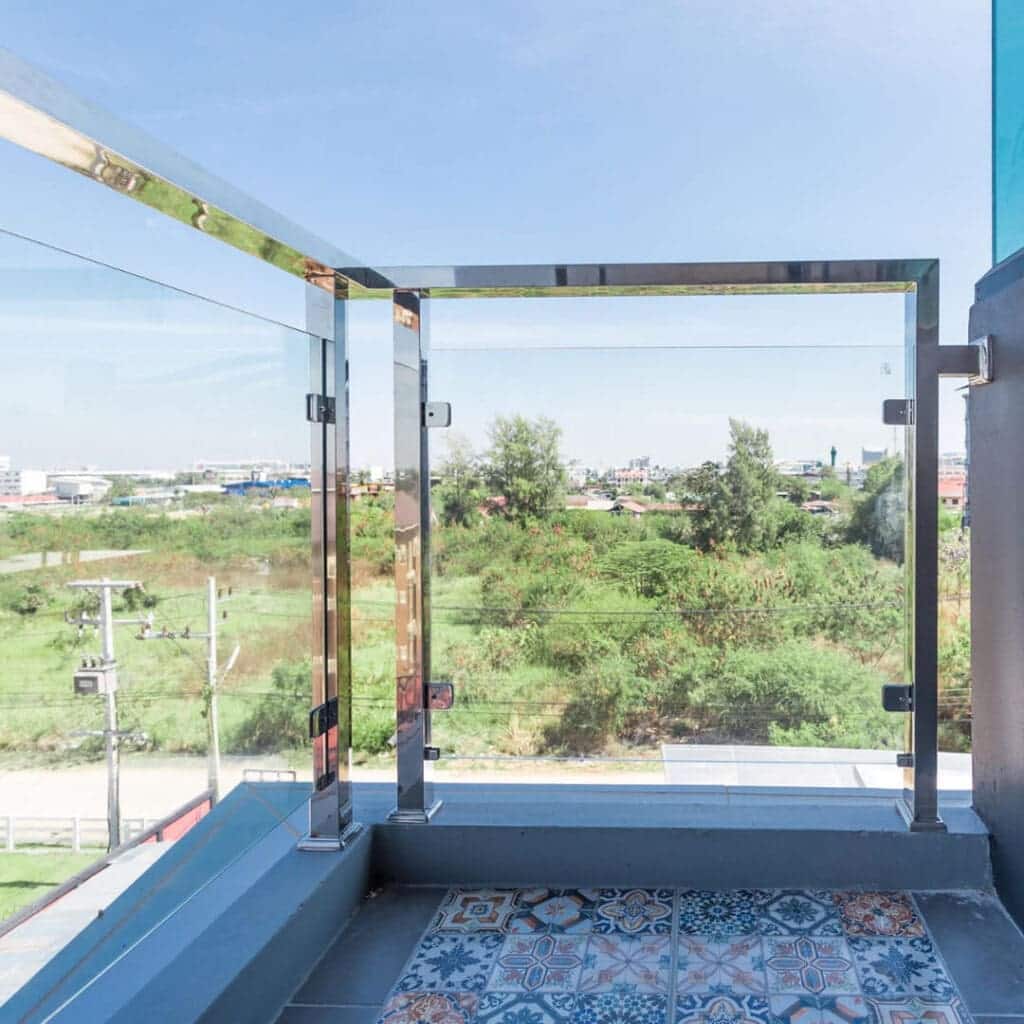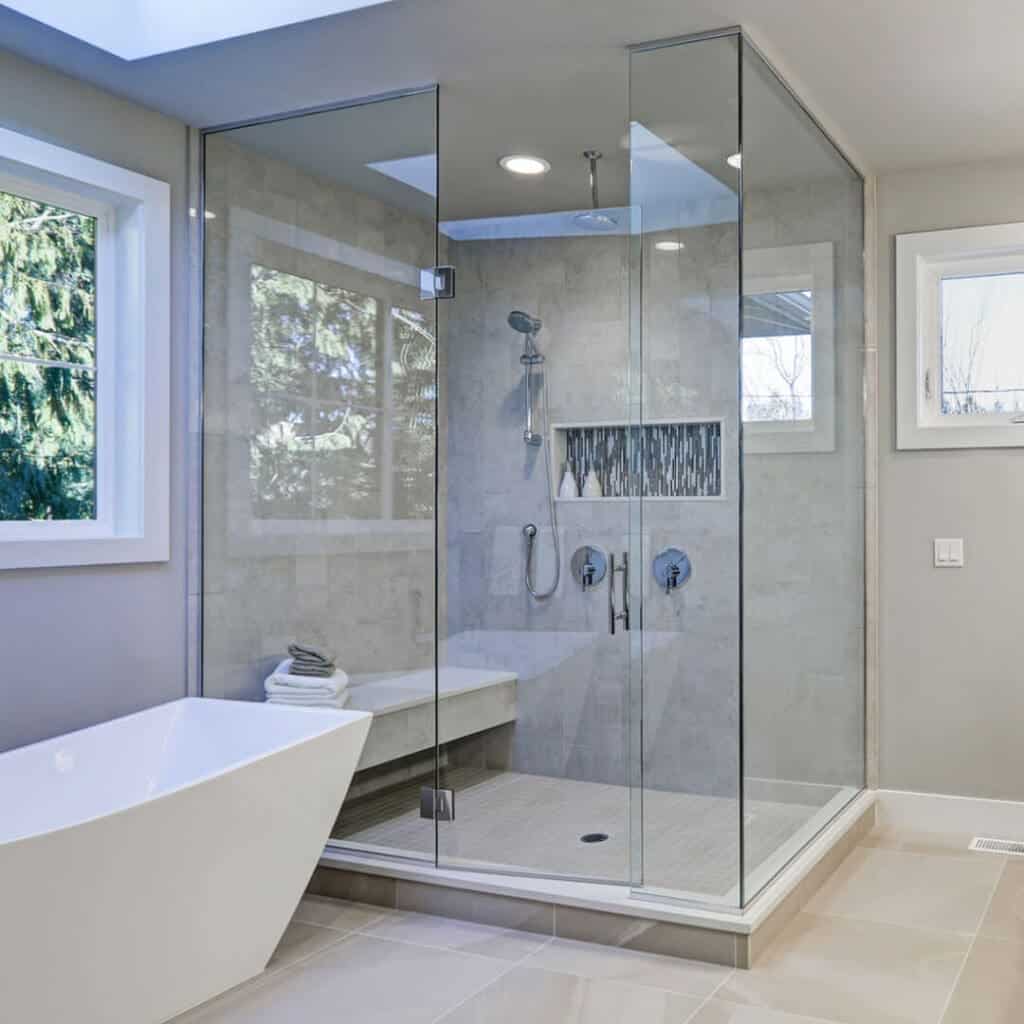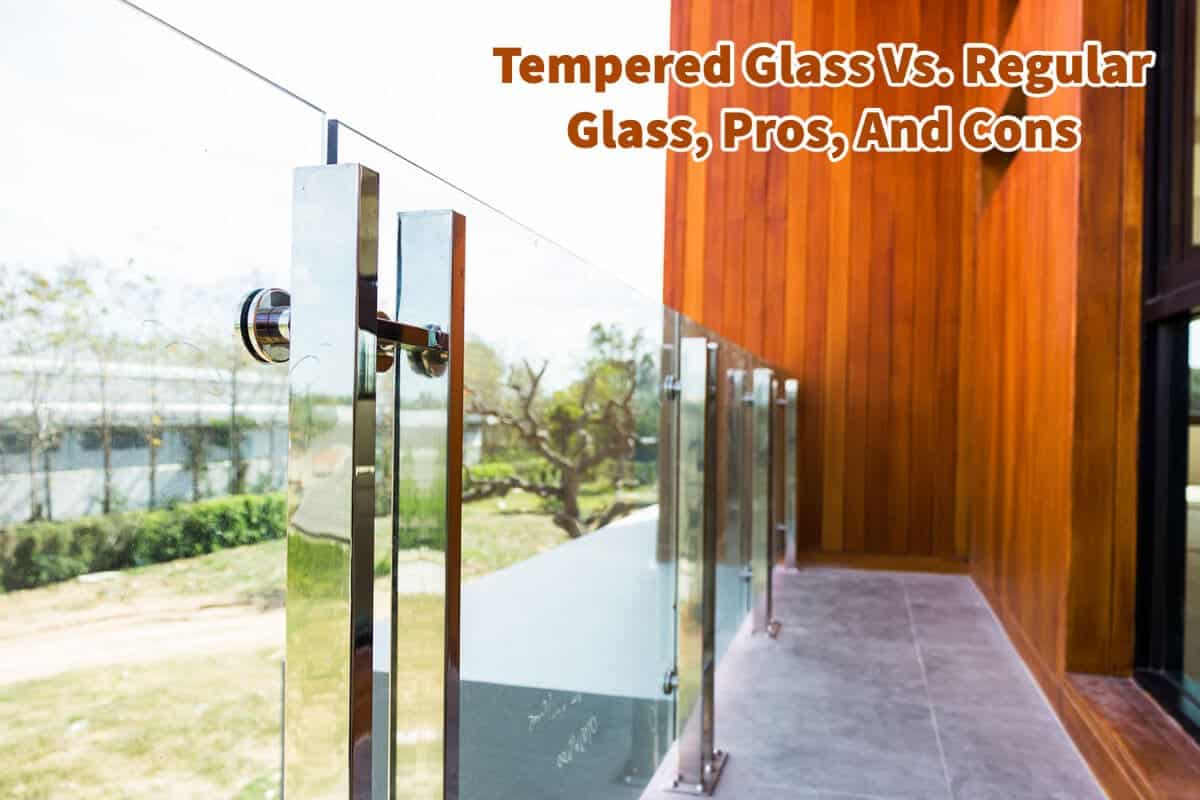If you are looking for glass to use, your primary choice is usually between tempered glass and regular glass. Though the glasses have some similarities and they also have some differences.
Glass is a popular material used in various applications, from home decor to the automotive industry. It is a versatile and beautiful material, but not all glass is created equal. Tempered glass and regular glass are two popular types of glass that serve different purposes and have different strengths and uses. Read on to learn about tempered glass and regular glass and why we recommend tempered glass for all table tops and glass shelves.
Table of Contents
- What Is Tempered Glass?
- What Is Regular Glass?
- Tempered Glass Vs. Regular Glass: Reasons To Use Tempered Glass Instead Of Regular Glass
- Frequently Asked Questions – Tempered Glass Vs. Regular Glass
- Related Content
What Is Tempered Glass?
Tempered glass is a type of glass that is heated to a high temperature and then cooled quickly to increase its strength. The rapid cooling process creates tension on the surface, making the glass much more robust than regular glass.
When tempered glass breaks, it shatters into small, rounded pieces instead of sharp shards, reducing the risk of injury. Tempered glass is commonly used in applications where safety is a concern, such as car windows, shower doors, and mobile phone screens.
What Is Regular Glass?
Regular glass, known as annealed glass, is the most common type of glass used in household applications. It is produced by heating glass to a high temperature and then slowly cooling it to room temperature.
Regular glass is easy to manufacture and relatively inexpensive compared to tempered glass. However, it is much weaker than tempered glass and breaks into sharp, jagged shards when it shatters.
Tempered Glass Vs. Regular Glass: Reasons To Use Tempered Glass Instead Of Regular Glass
Because of how tempered glass is manufactured, it is always more expensive than regular glass, especially when you buy it for your home furniture or home decor needs.
There are several reasons to use tempered glass instead of regular glass. Here are some of our top reasons:

Tempered Glass And Safety
Safety is perhaps the most important reason to choose tempered glass over regular glass. The tempering process strengthens the glass, making it five times stronger than standard glass.
This makes tempered glass an excellent choice for applications where safety is a concern, such as table tops, shower doors, glass railings, and automobile windows. In addition, tempered glass shatters into small, rounded pieces, reducing the risk of injury in the event of breakage.
This is particularly important in applications where people are likely to be nearby, such as glass tabletops in the home or office; that is why the tables we make with glass will use tempered glass.
Tempered Glass And Heat Resistance
Tempered glass is much more heat-resistant than regular glass. This makes it ideal for applications where sudden temperature changes are likely, such as oven windows or fireplace screens.
Regular glass can crack or shatter when exposed to sudden temperature changes, but tempered glass can withstand extreme heat without breaking. This makes tempered glass safer and more practical for applications where heat resistance is essential.
Tempered Glass Is Scratch Resistance
Tempered glass is also more scratch-resistant than regular glass. The tempering process hardens the surface of the glass, making it more resistant to scratches and other types of wear and tear.
This makes it an ideal choice for applications likely to experience regular use, such as glass tabletops or kitchen countertops. Scratches on standard glass can be unsightly and weaken the glass, but tempered glass maintains its strength and durability even when scratched.

Tempered Glass And Durability
Tempered glass is more durable than regular glass and can withstand impacts and pressure better. This makes it a popular choice for applications likely to experience accidental effects or pressure, such as automobile windows or glass railings.
Tempered glass is less likely to break or shatter under pressure, reducing the risk of injury or damage to property. In addition, tempered glass is less likely to break or chip under standard regulation. It is a longer-lasting and more practical choice for many applications.
Tempered Glass And Aesthetics
Tempered glass can be customized with different tints, colors, and finishes, making it a popular home decor and furniture choice. Tempering does not affect the ability to add color or finish to the glass, so tempered glass can match any design aesthetic.
In addition, tempered glass is often used in architectural applications where the aesthetic value of the glass is an important consideration. Overall, tempered glass is a practical and stylish choice for various applications.
When using glass in home decor and furniture, tempered glass is the better choice due to its superior strength and safety features. Glass table tops, for example, are prone to breakage due to accidental impacts or pressure.
If a regular glass tabletop shatters, it can cause serious injury to anyone nearby. On the other hand, a tempered glass table will break into small, rounded pieces, reducing the risk of injury.

Tempered glass and regular glass are two popular types of glass used in various applications. While standard glass is cheaper and easier to manufacture, tempered glass offers superior strength, safety, and durability.
When using glass in home decor and furniture, it’s best to use tempered glass to reduce the risk of injury and ensure longevity. Whether you’re choosing glass for a tabletop, shelf, or coffee table, consider why tempered glass would be your best choice glass.
Find out more about how Mondoro can help you create, develop, and manufacture excellent home decor and furniture products – don’t hesitate to contact me, Anita. Check out my email by clicking here or become a part of our community and join our newsletter by clicking here.
Mondoro gives out a FREE Lookbook to anyone interested. You can receive a copy of our latest Lookbook by clicking here.
Listen to our Podcast called Global Trade Gal. You can find it on all major podcast platforms. Try out listening to one of our podcasts by clicking here.
Subscribe to our Mondoro Company Limited YouTube Channel with great videos and information by clicking here.
Frequently Asked Questions – Tempered Glass Vs. Regular Glass
What is the difference between tempered glass and regular glass?
Tempered glass is a type of safety glass processed by heating regular glass to a high temperature and then rapidly cooling it, making it stronger and more resistant to breaking. Regular glass is not treated this way and is more prone to breaking.
Is tempered glass more expensive than regular glass?
Yes, tempered glass is typically more expensive than regular glass due to the extra processing it undergoes to make it stronger and safer.
Can tempered glass break?
Yes, tempered glass can still break under certain circumstances, but it is much stronger and more resistant to breaking than regular glass. When tempered glass does break, it shatters into small, rounded pieces rather than sharp, jagged shards like normal glass.
Can tempered glass be cut?
Tempered glass cannot be cut once it has been tempered. It must be cut to the desired shape and size before it undergoes the tempering process.
Is tempered glass better for windows?
Yes, tempered glass is a popular choice for windows because of its strength and safety features. If it does break, it is less likely to cause injury because it shatters into small pieces instead of sharp shards.
Is tempered glass necessary for shower doors?
Yes, tempered glass is necessary for shower doors to meet safety codes and regulations. Regular glass is not considered safe for shower doors due to the risk of breaking and causing injury.
Can tempered glass be repaired if it cracks?
No, tempered glass cannot be repaired if it cracks or breaks. It must be replaced entirely.
Can tempered glass be used for tabletops?
Tempered glass is recommended for tabletops because of its strength and durability. It is more resistant to breaking and scratching than regular glass.
Does tempered glass provide better insulation than regular glass?
No, tempered glass does not provide better insulation than regular glass. The insulation properties of glass depend on the thickness and type of glass used, not whether it is tempered.
Is tempered glass more environmentally friendly than regular glass?
Tempered glass is not necessarily more environmentally friendly than regular glass. Both types of glass can be recycled and reused, but the energy-intensive process of tempering glass may have a more significant environmental impact.
Related Content
How To Clean Mother Of Pearl Furniture And Home Decor Items
You can use several methods to clean your mother-of-pearl furniture and home decor items. One way is to use a soft cloth and mild soap to wipe down the mother of pearl; this will help remove any dust and clean the surface. The other method uses olive or coconut oil to polish the mother-of-pearl surface.
You can discover more by reading How To Clean Mother Of Pearl Furniture And Home Decor Items by clicking here.
How To Lighten Up And Clean A Seagrass Basket? And Other Tips
One of the best ways to lighten your seagrass basket is to put it out in the sun. When put in the sun, seagrass will naturally lighten up. You can also use soap and water to clean your seagrass baskets. We recommend putting the seagrass baskets out in the sun as this will help freshen up your basket or other Seagrass product.
You can discover more by reading How To Lighten Up And Clean A Seagrass Basket? And Other Tips by clicking here.
What Is The Formula Of Glass?
Glass is generally made by heating sand or a sand mixture to a very high temperature, so the sand melts. Once the sand mixture is liquid, it can be poured and rolled into a flat glass, pressed into a shape, or blown into a piece of art glass. Once the glass mixture cools, the glass is formed.
You can discover more by reading What Is The Formula Of Glass? by clicking here.

